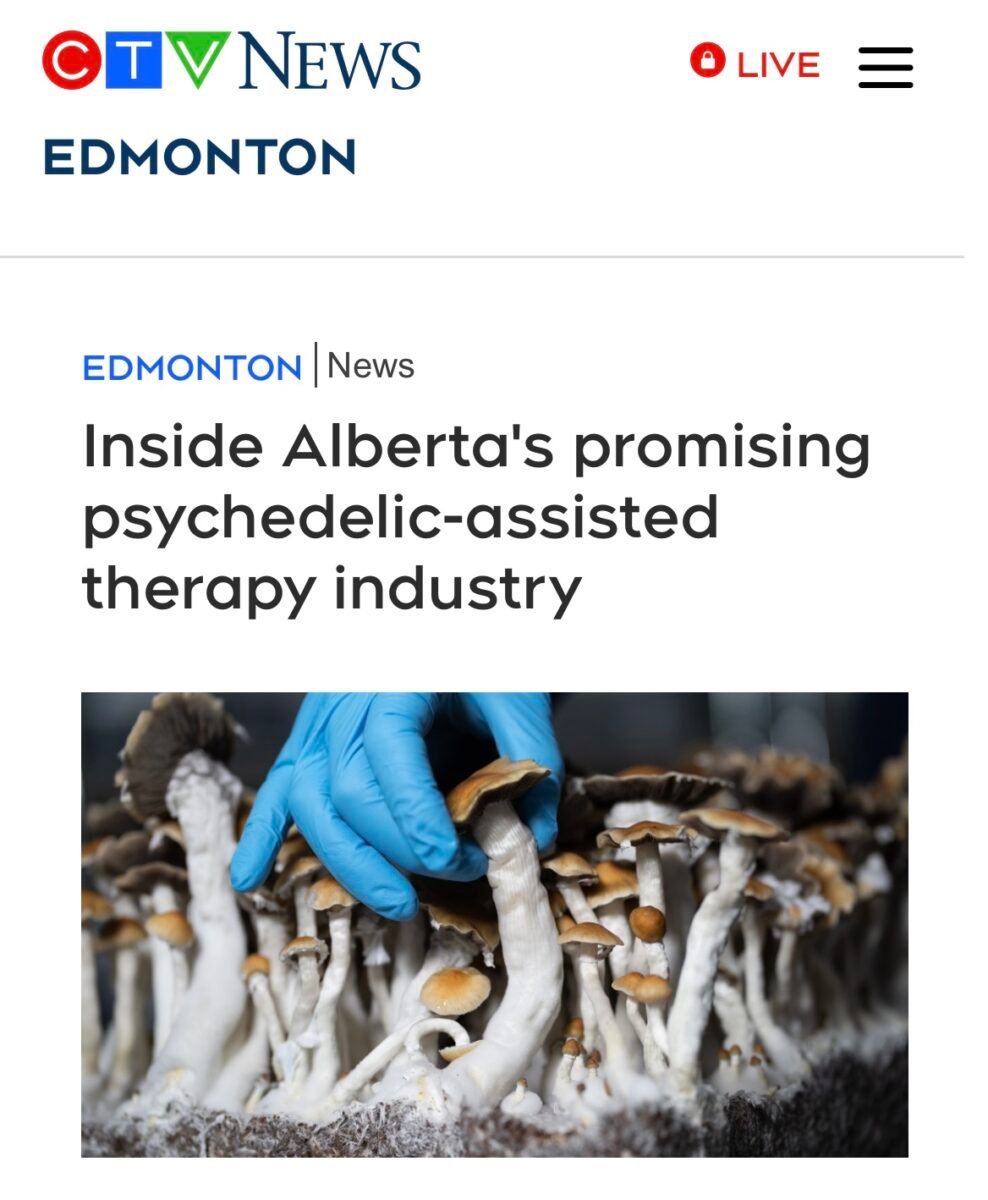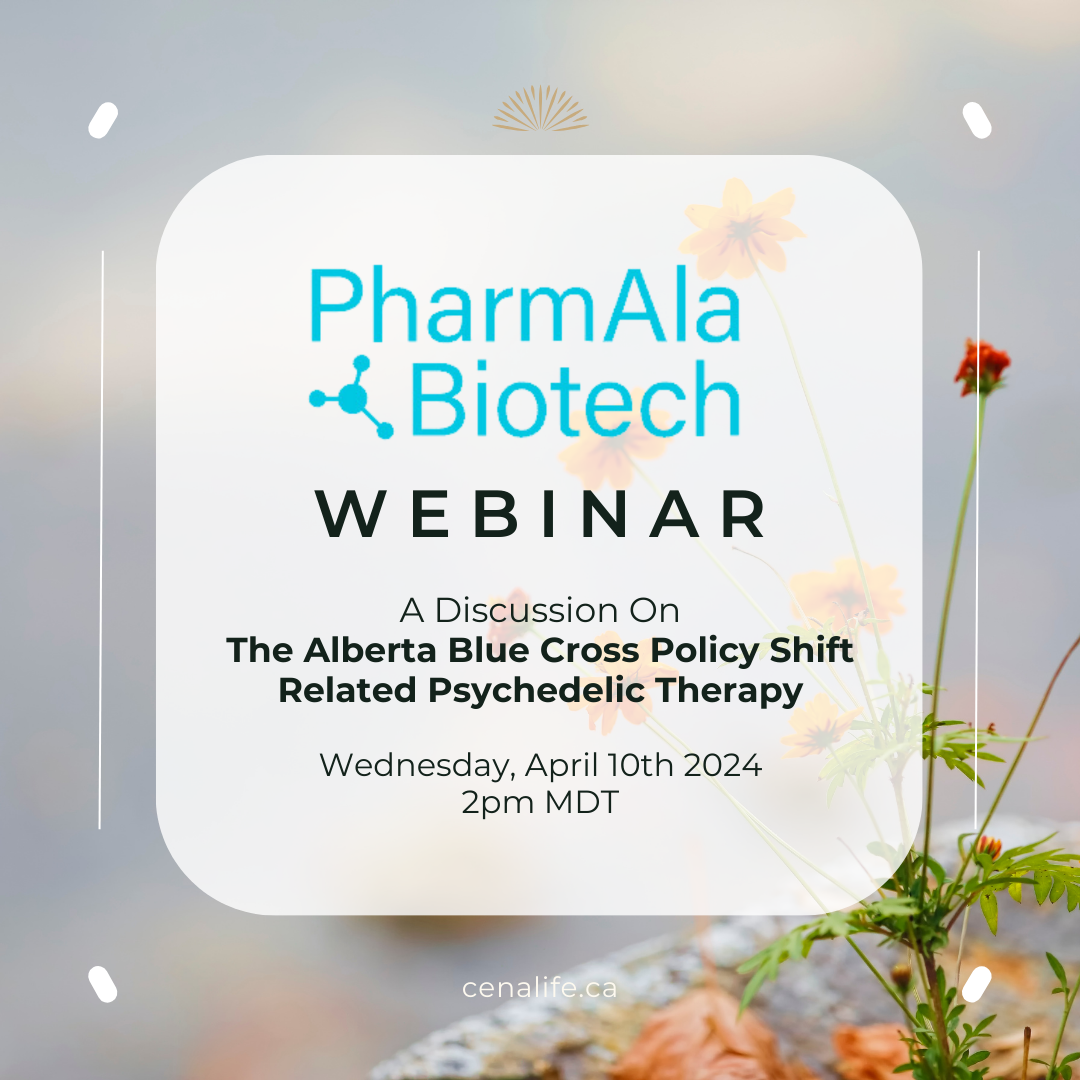
Since 2021, our partners at ATMA Journey have been committed to providing training to therapists and practitioners globally, aiming to foster greater participation in the field of PaT. However, beyond training, ATMA’s overarching vision has always been to equip therapists and practitioners with the essential supports needed to deliver psychedelic-assisted therapy effectively following their training.
With the impending legalization of MDMA-assisted therapy (MaT), ATMA acknowledges the scarcity of trained therapists in Canada capable of effectively delivering MaT. Consequently, ATMA has launched its in-person clinical training workshop on MDMA-assisted therapy utilizing the MAPS protocol, commencing in May 2024!
Two limited-seating sessions are scheduled as follows:
ATMA CENA Clinic Calgary, Alberta – May 25-26, 2024
ATMA CENA Clinic London, Ontario – June 22-23, 2024
Therapists and practitioners interested in ATMA’s MaT Clinical Training Workshop and or how to deliver PaT in collaboration with an ATMA CENA clinic can contact us in the links.
Read their latest press release here!

The implementation of licensing and service standards for Psychedelic Drug Therapy Services (PDTS) in Alberta represents a pivotal moment in the evolution of mental health care. This past year has been a journey characterized by many processes that have required a comprehensive re-evaluation of our workspace and programs to enhance efficiency in care and ensure access without ever compromising safety and quality.
Leading this work required a visionary but grounded approach, focusing on fostering an environment where quality and accessibility to psychedelic therapy was the priority.
Throughout this process, the team worked collaboratively toward our program goals and championed a culture of continuous learning and improvement. This meant being open to feedback from both clients and staff, encouraging innovation in program implementation, and being willing to adapt approaches based on new evidence and insights. Our work also involved advocating for the acceptance and integration of psychedelic-assisted therapies within the broader healthcare system, through sharing information and engaging with both the public and regulatory bodies in meaningful dialogue.
A year of learning, preparation, and ongoing adjustment has taught me that the successful implementation of PDTS in Alberta is dynamic and requires flexibility, dedication, and a deep commitment to the well-being of those we serve. Ensuring the care is not only effective but safe, accessible, and responsive to the needs of individuals in Alberta who are seeking support for their mental health.
Looking forward, the journey does not end here. The landscape of psychedelic-assisted therapy is rapidly evolving, and we must continue to evolve with it. Our focus will be to stay informed about the latest research, be an active participant in the broader conversation about mental health care, and as we pass through accreditation, always prioritizing the safety and well-being of our clients. Through this commitment to excellence, we will continue to evolve as a PDTS service provider in Alberta and remain at the forefront of compassionate, evidence-based care for mental health.

Integration is the key to unlocking the lasting benefits of psychedelic-assisted therapy. It’s about making sense of your experiences, applying insights to your life, and fostering personal growth. Our circle offers a structured, supportive environment where you can share, learn, and grow alongside others on similar paths. Whether you’re seeking to deepen your understanding of your experiences, looking for ways to maintain the momentum of your healing, or simply wishing to connect with others who have walked a similar path, our Integration Circle is here for you. Together, we can turn insights into action and challenges into growth.
These group sessions will be led once a week by our Lead Psychologist, Priya Bains, alongside 1-2 co-facilitators. The group is structured to provide a safe and confidential space to explore your treatment experiences, no matter where you received your treatment. You’ll have an opportunity to share your journey, listen to others, and discover common threads in a non-judgmental setting.This is a chance for you to learn and practice effective strategies for integrating your experiences into your daily life.
If you’ve recently undergone psychedelic-assisted therapy treatment and are wondering what’s next on your path to healing and growth, our post-treatment Integration Circles are designed to support you as you navigate the transformative experiences and insights gained during your therapy. This is a space where your journey continues, surrounded by a community that understands. Your journey doesn’t end with treatment; it’s just beginning. Let’s navigate this path together, transforming insights into lasting change.

We were so excited to read this fantastic article by CTV Edmonton which was release on Saturday April 27th. It includes information about the new Cena Life clinic & partnership in ATMA-CENA while also covering ground on Alberta Blue Cross coverage for psychedelic-assisted therapy, and going into some depth on MDMA-Assisted Therapy, which is expected to be approved for use in the United States this summer (!), and therefore, likely be okayed in Canada shortly after.
This is big news. Regulations are shifting rapidly. For practitioners and clinics interested in offering these treatments: ATMA-CENA is here to help you get up to speed and put you in a position to offer Psychedelic-Assisted Therapy safely and efficiently.
For individuals seeking treatment, you can book an Info Session directly at cenalife.ca. Please don’t hesitate to reach out! We want to help usher in this new era of mental health awareness.

On April 10th, our CEO & COO joined a webinar hosted by PharmAla (the Canadian manufacturer of MDMA) to have a discussion with their CEO regarding insurance program enhancements that allow claims for psychedelic therapy in Alberta to be eligible for reimbursement under plan members’ drug and psychology benefits.
“for the most part, mental health support does exist inside of acute care, but for the most part, supports for mental health exist in community and are paid for out of pocket or through an arrangement through your employer or something you’ve accessed individually through a third party insurer. When it becomes clear that something isn’t free is when your insurance wont cover it!” This is why we are so hopeful about the changing landscape of coverage for psychedelic-assisted therapy. We think these are steps towards REAL change.
If you missed this webinar, you can watch the replay on YouTube!
